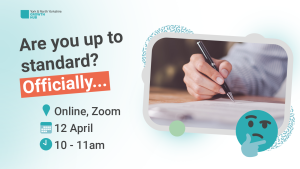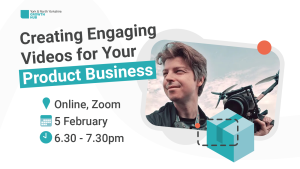
Who are your customers?
–
Understanding your target audience is a fundamental step in building a successful business. Your target audience represents the individuals or groups most likely to be interested in your products or services. By identifying and catering to the needs and preferences of this audience, you can make the most of your marketing activities and ultimately increase your chances of success. Below are some key steps to get you started with the process of identifying your likely audience or customers for your business.
–

–
Market research
Market research is the starting point of identifying your target audience. It involves gathering data and insights about your industry, competitors, and potential customers. Here are some key steps in conducting effective market research:
- Competitor analysis: Study your competitors to understand who their customers are and what methods they use to attract them. Depending on your industry, there will be a variety of information available about the general profiles of customers for your type of business. Some of this information will be free, some may need to be paid for.
- Customer surveys: Conduct surveys or interviews with existing customers to gather information about their demographics, preferences, and pain points.
- Demographic data: There are numerous reports available from different agencies. Search for reports about general population information in your market area about information such as age, gender, location, income level, and occupation to segment your potential audience.
- Psychographic data: ‘Psychographic’ refers to the study of people’s wants, needs and behaviours. This information can include factors like lifestyle, values, and interests, which will help you gain deeper insights into your audience’s motivations and decision-making processes.
- Market trends: Stay updated on industry trends, consumer behaviour changes, economic and policy shifts, and emerging markets that may affect your target audience.
Remember, your business doesn’t stand still, and neither will the market or your audience. Repeat this activity on an annual basis to see how your customer base is evolving and how their needs are changing.
Create customer personas
Once you’ve collected data from your market research, use this information to create detailed customer personas. Personas are fictional, generalised profiles of your customer groups. Each persona should include demographic details, as well as their likely wants and needs, and the challenges that your product or service can address. Creating these personas helps you personalise your marketing efforts and tailor your messaging to resonate with your target audience.
Look at your current customer base
If you have an existing customer base, spend some time looking in to what you know about them to identify common characteristics – particularly among your best customers. Look for patterns in demographics, buying behaviour, and customer feedback. Your current customers can provide valuable insights into the type of audience your business attracts and serves well.
Use your social media insights
Social media platforms offer robust insights and analytics tools that can help you understand your audience better. Explore these tools to gather data on the demographics, interests, and behaviours of your social media followers, including what content they have strongly engaged with. This information can help refine your target audience and inform your content strategy.
Conduct focus groups and surveys
Consider conducting focus groups, either face-to-face or online, or, if that isn’t possible, online surveys to gather direct feedback from potential customers. These can provide valuable qualitative insights and allow you to refine your understanding of your target audience.
Test and refine
Identifying your target audience is an ongoing process. As your business evolves and grows, so may your audience. Continuously test and refine your audience segmentation based on new data and feedback. Be open to adjusting your marketing strategies to better serve the evolving needs of your target audience.

Learn more
Find out how to monitor the effectiveness of your marketing activities
See more about how you can retain your customers
–

–
Articles
Small businesses set to benefit from £1 million in funding
Businesses which form the bedrock of North Yorkshire’s economy have the chance to benefit from £1 million in funding through a new package of capital grants.
Start Your Business in the Creative Industries: Free 12-week Skills Bootcamp
Are you a creative looking to turn your passion into a thriving business venture? Aesthetica, in collaboration with York St John University and the Growth Hub, is launching the Creative Business Skills Bootcamp. The bootcamp is a comprehensive training programme aimed at supporting individuals in launching, sustaining, and growing a business in the creative industries.
From Grants to Growth: Securing Funding for Rural Business
Rural subsidies are complex – so we asked our rural business specialist Nick White to give us his top tips for getting the funding your business needs to succeed.
Events
16th May 20249:30 am - 11:00 amFREE
16 May - North Yorkshire Council: Connect Over A Cuppa
‘Connect Over A Cuppa’ Harrogate drop-in sessions help businesses to share new ideas, solve problems, and connect with like-minded businesses.
16th May 20241:00 pm - 2:00 pmFREE
16 May Webinar: A Guide to…Writing a Business Plan
All good businesses start with a good idea. And turning that idea into a business requires a plan. Even if you don’t need to apply for funding, it is still important to write up a business plan. This webinar will cover the essentials of writing a business plan, and how they can be used when applying for grants.
17th May 202410:00 am - 11:00 amFREE
17 May Webinar: A Guide to…Writing a Cash Flow Forecast
Predicting your revenue forecast and expenses when starting a business is one of the most important, yet neglected, areas of business planning. This webinar will cover the essentials of writing a cash flow forecast, and how they can be used when applying for grants.
Resources
Webinar Recording : Are you up to Standard? Officially…
Whether you are selling a products or services, you want to make sure you’re up to the standards. In the UK, Trading Standards teams enforce over 80 parliamentary acts and pieces of legislation. So, are you up to their standards?
Young Entrepreneur Guide
Do you have a business idea? Or do you want to work for yourself? Then the Young Entrepreneur Guide is here to help you!
Webinar Recording : Creating Videos for Your Business
Daniel Pingstone of Fly Flow Media recently delivered two webinars in partnership, looking at how to create videos for both products and service based businesses. In this condensed recording, Dan covers the content shared in each of those sessions.










